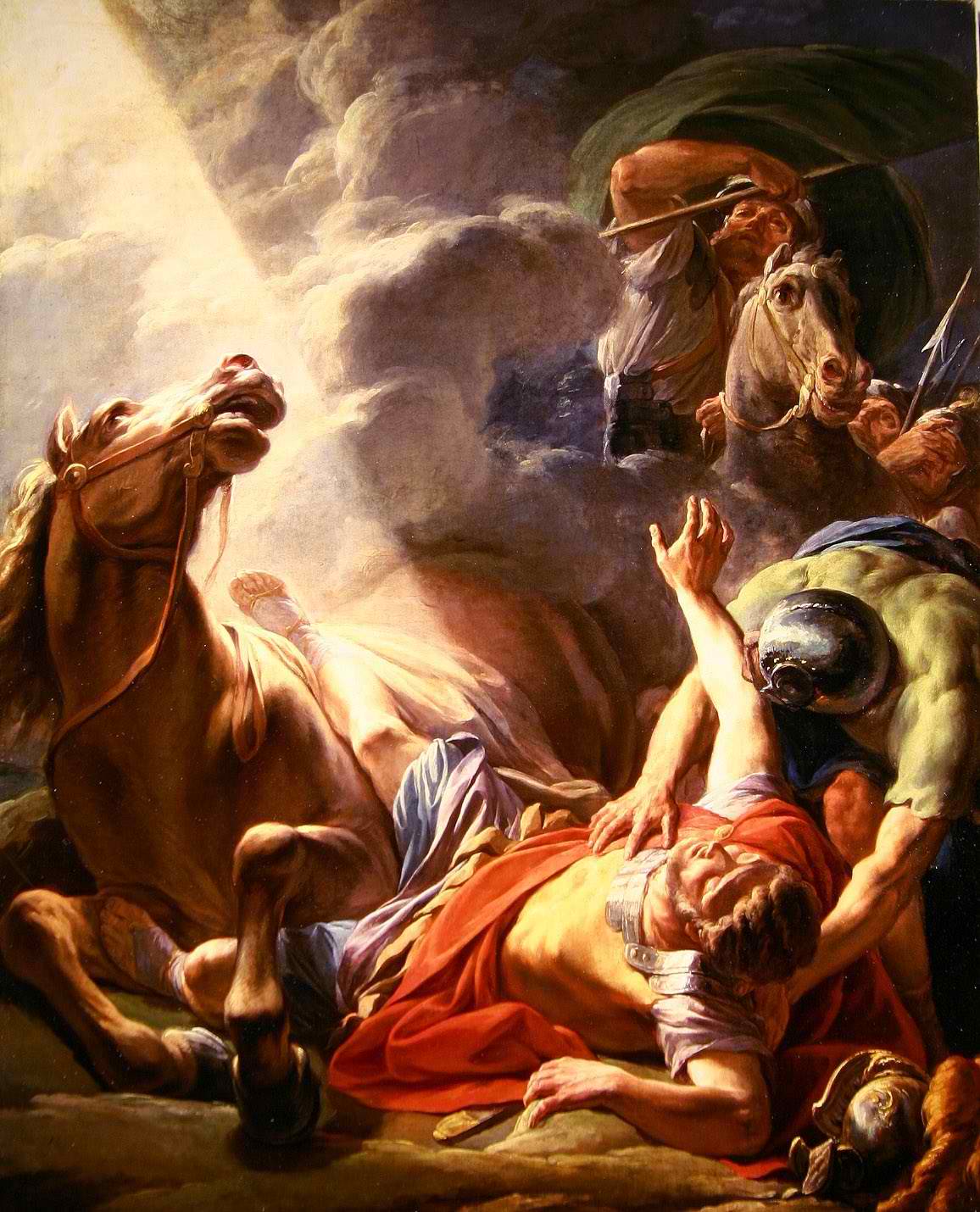
January 25, 2023 Conversion of St. Paul
Acts 22:3-16 or 9:1-22; Psalm 116; Mark 16:15-18
Today we celebrate a great conversion, that of Paul of Tarsus who, from being a persecutor of Christ, thunderstruck by grace on the road to Damascus, became the apostle to the Gentiles. A conversion that he himself recounts with accents of emotion and gratitude and that was like a fast track, on which, after him, an innumerable host of people entered who, with life experiences that were first far from God and sometimes declared enemies, then found their way back. Conversion is a reversal of course, a disavowal of past mistakes, a sincere repentance of evil committed and a consequent falling in love with a new, true, authentic good.
In the First Reading, we follow the account of Saul asking the high priest for letters authorizing him to go to Damascus and lead the followers of Christ back to Jerusalem in chains. Then, we see him, as he approaches the city, fall to the ground dazzled by a blazing light and hear a voice saying, “Saul, Saul, why do you persecute me?” Quite puzzled, Saul replies, “Who are you, sir?” The answer, “I am Jesus, whom you persecute.” Finally, healed of blindness and baptized, he became an apostle to the Gentiles. “Saul was led to Ananias: the ravaging wolf is led to the sheep. But the Shepherd, who from heaven guides all, assures him, “Do not fear.” How wonderful! The captive wolf is led to the sheep. The Lamb, who dies for the sheep, teaches him not to fear” (St. Augustine)
The church should never forget the mystery of grace that it celebrates in this liturgical memorial: not so much the passage from unbelief to faith, but the radical renunciation of all forms of overpowering in the name of faith, a constant temptation that runs through the believing heart when it is called to measure itself against something or someone strongly foreign to its religious sensibility. Of course, this meekness is at the heart of the conversion experienced by Paul, that is, the transition not so much from sins to a morally blameless life, but that from a conception of a demanding and intransigent God to one compatible with the inclusive logic of the gospel. “St. Paul’s conversion took place in his encounter with the risen Christ; it was this encounter that radically changed his life. In this lies his and our conversion: in believing in Jesus who died and rose again” (Benedict XVI). Arise also and continue in HIS ways….
Today’s Gospel page quotes the last verses of Mark’s Gospel, those that constitute the “longer end” to distinguish it from the “shorter” end. Both of these texts are thought to have been inserted to complement the rather abrupt conclusion of this Gospel, which ended with the description of the women who on Easter Day fled from the empty tomb “bewildered and trembling” and, because of their great fear, “said nothing to anyone.”
The inclusion of these verses underscores the mission of the apostles to spread the gospel throughout the world, closely uniting the witness of the word with that of works and signs. With the exhortation to universal mission is joined the statement that faith and baptism are required for salvation.
Mission concerns all people: proclaiming the Gospel is not discretionary, an optional thing, it is not just for some, it is not a privilege reserved only for “missionaries.” Proclaiming the Gospel is constitutive of being a Christian, baptized, confirmed, a child of the Church. But what is proclamation? It is giving what one has received both through catechesis and through one’s personal experience. The one illuminates the other. Kerygmatic catechesis,
the proclamation received from the Church moves to conversion. Salvation experienced illuminates and makes the catechesis received alive in one’s life. There is no limit of place, space or situation. Where you live and are, there proclaim.
For good workers…
– Jesus’ instructions to his disciples before he leaves them for good apply very well to Paul who will proclaim the Good News to all nations WITHOUT FEAR. We too should do the same.
– Conversion does not mean changing the customs of one’s life, but venturing into a time of maturation in which every fear — of living and dying — needs to be consumed slowly in the fire of Christ’s love so that the “signs” of his life in us can be manifested:
– Conversion is not something that happens only once in a lifetime. It is something that can happen several times in the course of our lives. We are ready to respond whenever the Lord calls us to something greater.
P JOBY KAVUNGAL RCJ

